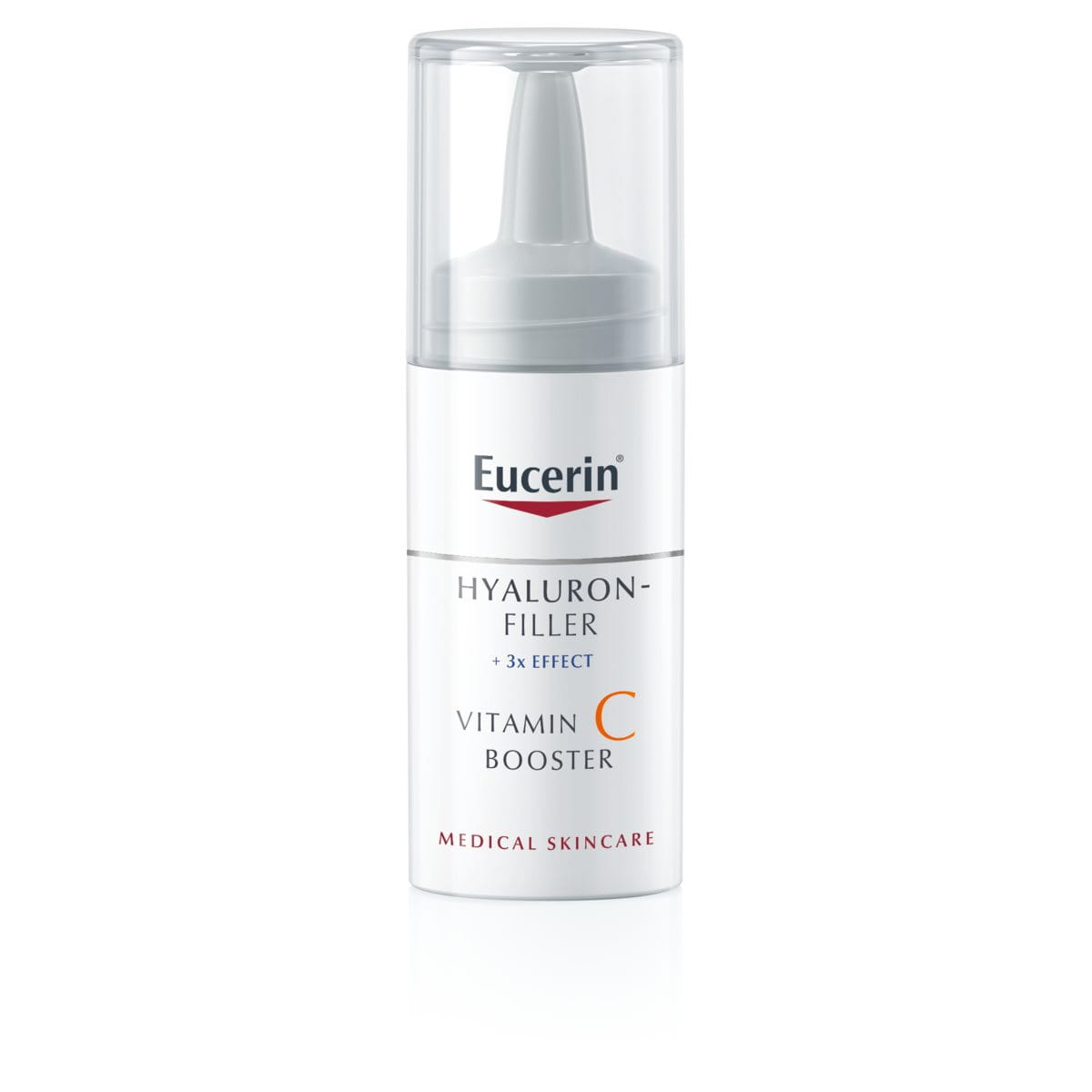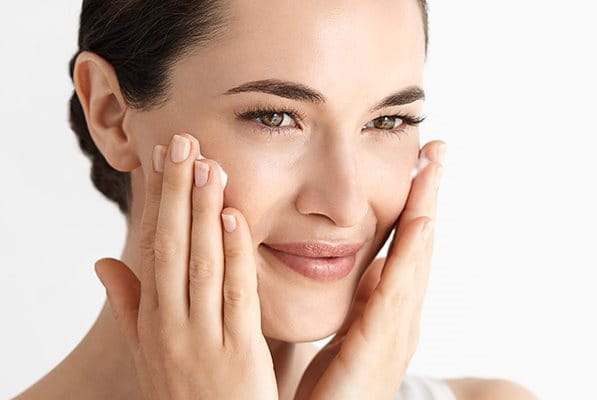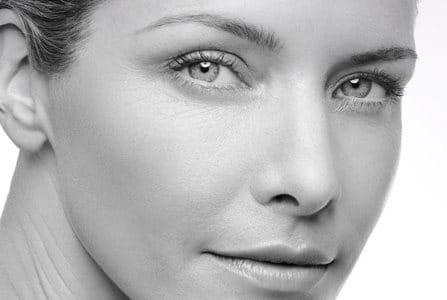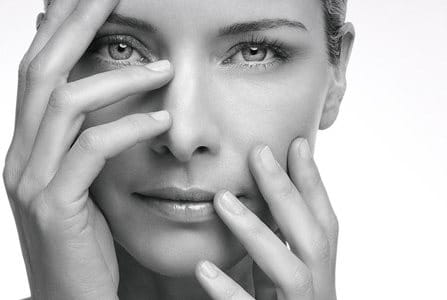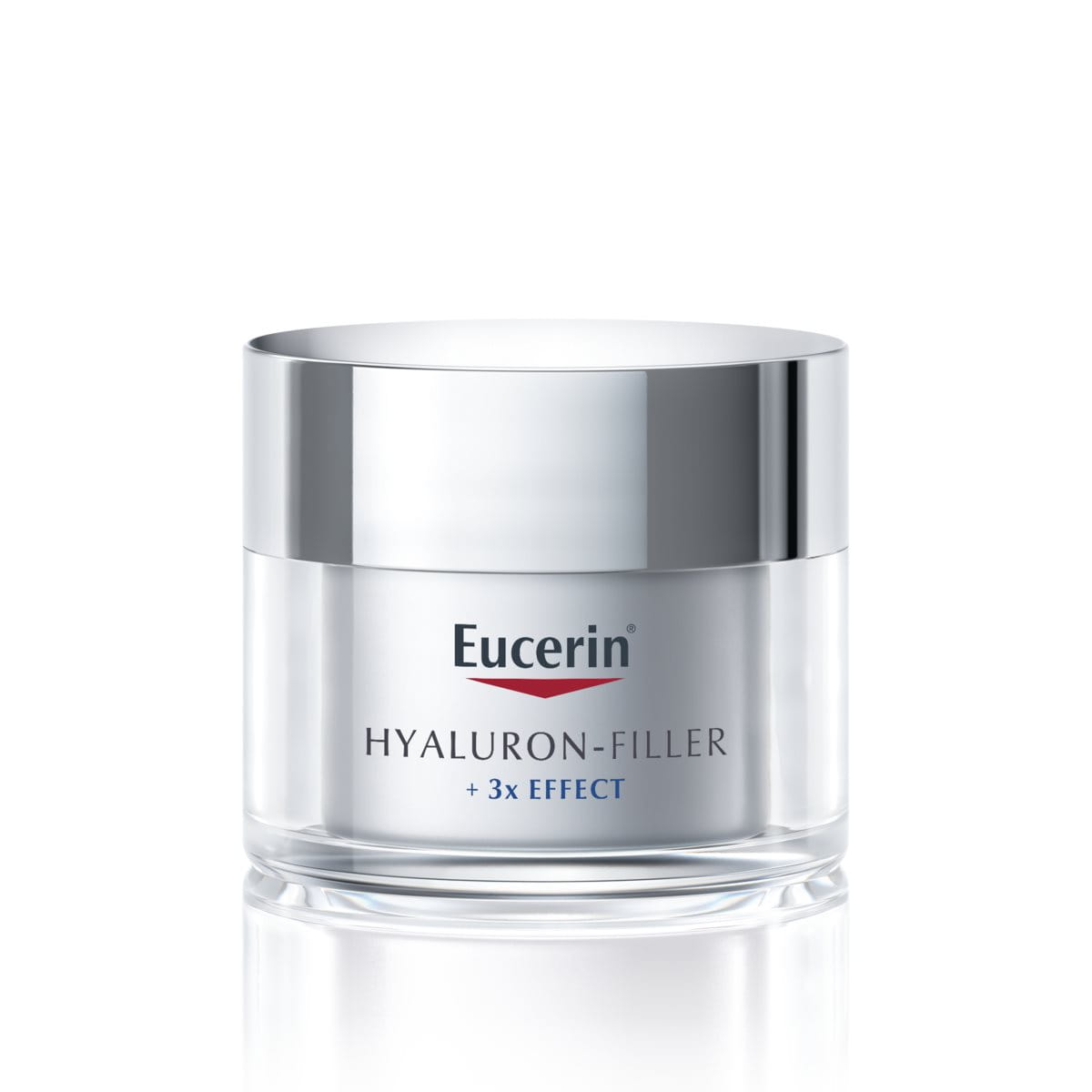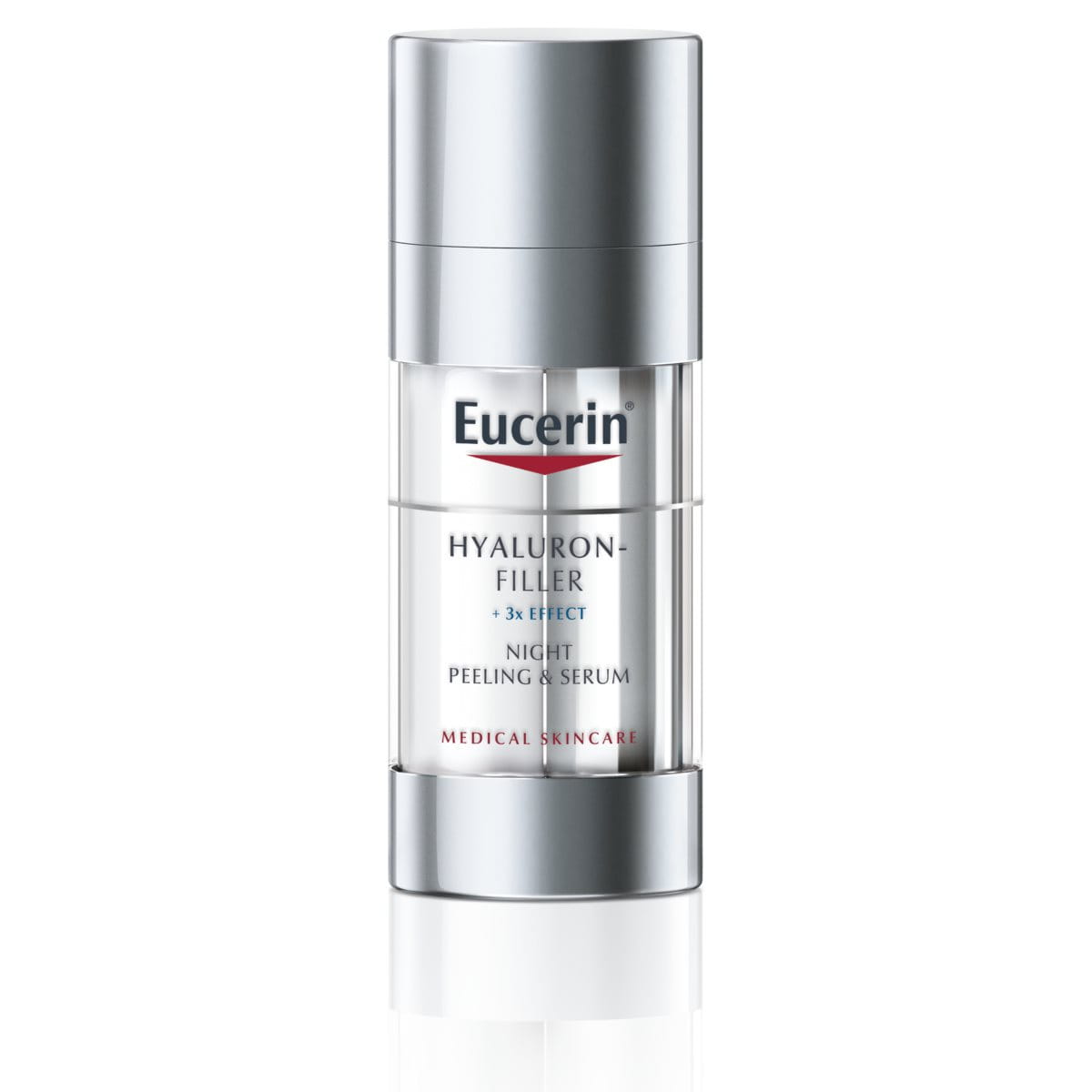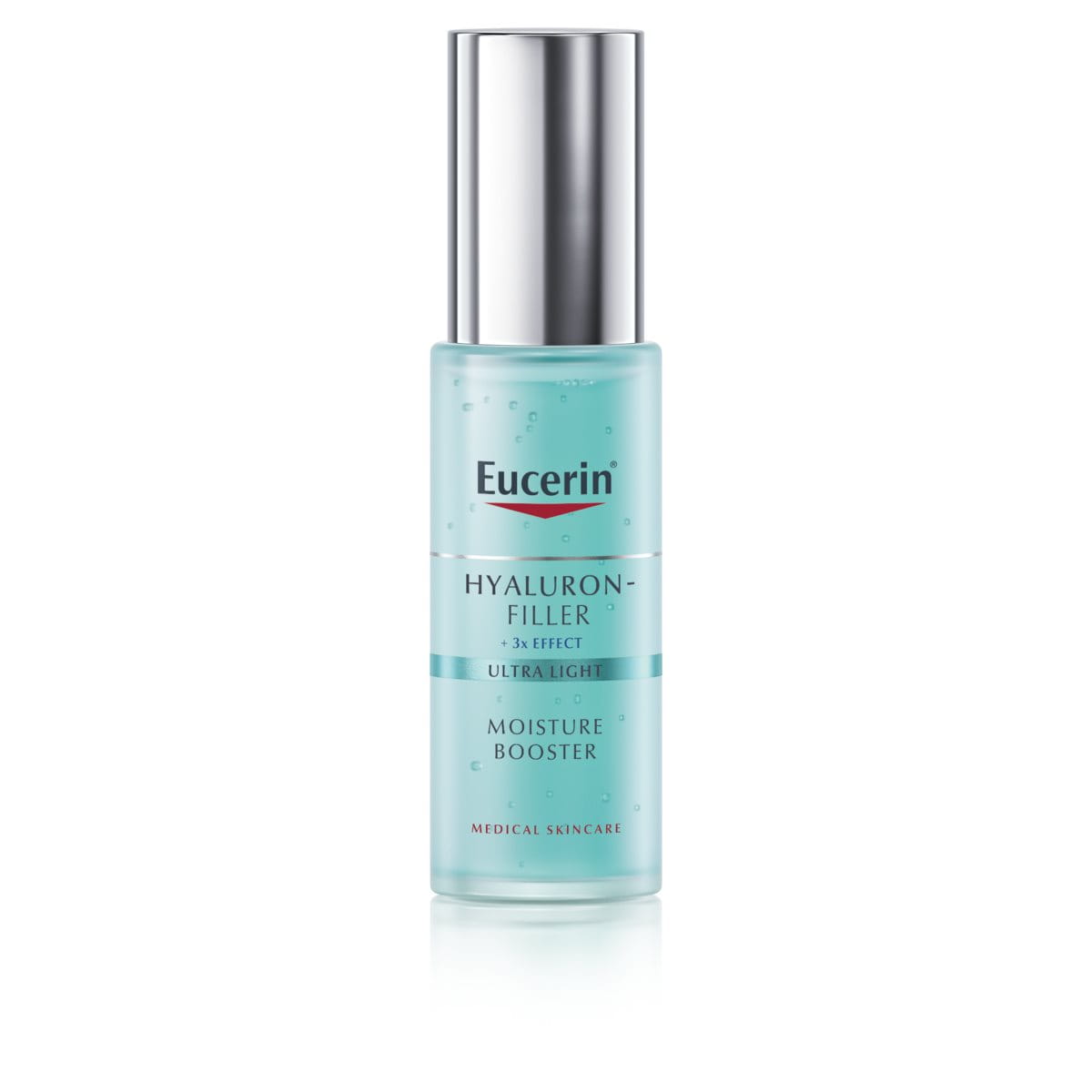Vitamin C is an essential nutrient for our overall health. This article explains how important it is to skin health too and looks at its role as an anti-oxidant and in the production and protection of collagen. Increasingly popular as a skincare ingredient, we examine how it helps prevent premature aging and the part it can play in a daily anti-aging skincare routine for all skin types.
What is Vitamin C?

Vitamin C (also known as ascorbic acid and L-ascorbic acid although these are actually different forms of the vitamin) is an essential nutrient to our overall health and the health of our skin.
It supports tissue repair, strengthens our immune system and is essential to many of the enzymatic processes in our bodies that keep us healthy: a lack of Vitamin C is known to cause scurvy, one of the first nutritional disorders to have been identified in sailors. Vitamin C is also a powerful anti-oxidant.
Found naturally in a variety of foods – citrus fruits being the most commonly cited examples – Vitamin C is used in a wide variety of over-the-counter medicines, is sold as a dietary supplement and is increasingly a key ingredient in skincare products.
Why is Vitamin C good for your skin?
As a powerful anti-oxidant, Vitamin C neutralizes the free radicals that cause oxidative stress to skin and lead to premature skin aging. It is also essential to the production of collagen in skin cells, helping to support skin structure and delay signs of aging.
Vitamin C as anti-oxidant
Vitamin C is proven to help neutralize the free radicals in our body that lead to oxidative stress. This helps to prevent premature skin aging and delay the visible signs of biological skin aging. Oxidative stress leads to dull, tired-looking skin and Vitamin C gives it the boost it needs to look younger and fresher. You can find out more in What are free radicals and how do they affect skin?
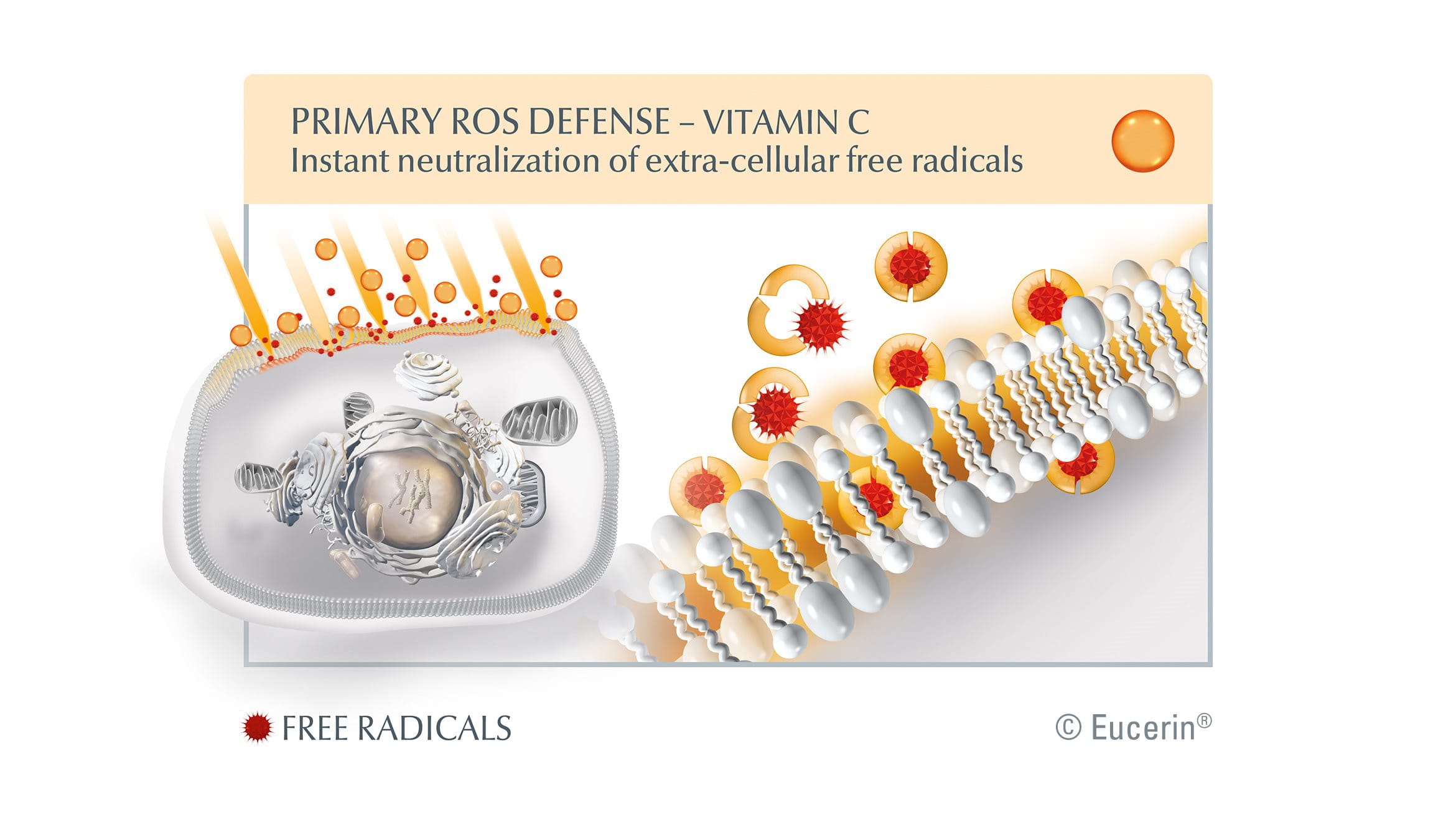
Vitamin C and collagen
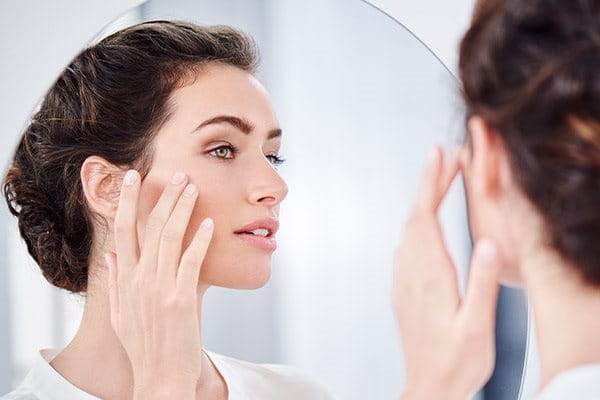
Collagen is one of the natural filler substances in skin. It’s in plentiful supply when we’re young and helps to give skin its firm and even appearance. As we age, collagen declines, and this decrease contributes significantly to the formation of fine lines and wrinkles and a loss of volume and contours in aging skin.
Vitamin C helps in two ways. Firstly, it is essential to the production of collagen in skin cells. Secondly, as a powerful anti-oxidant, Vitamin C helps to protect skin from the free radicals that break down the cells that produce skin components such as collagen and speed up its degradation.
How can I make sure my skin gets the Vitamin C it needs?
Your body can’t produce Vitamin C, so it relies on you providing it with a supply. And because our bodies can’t store Vitamin C, it helps to consume and/or apply this nutrient daily.
Vitamin C is also increasingly used in topically (externally applied) skin care products. It is used to give skin a boost and to keep it looking young, healthy and radiant and is often one of the first anti-aging products people use and you can find out more in anti-aging in your 20s.
A diet rich in Vitamin C

A healthy, balanced diet rich in Vitamin C is essential to both overall and skin health. Eat lots of fresh fruit and veg such as leafy greens, tomatoes and citrus fruits.
Vitamin C and skin care
Vitamin C is increasingly popular in topical (meaning externally applied) skin care products where it can help give skin a boost and keep it to look young and radiant.
One of the benefits of using a Vitamin C-enriched skincare product is that you can ensure that you’re applying it right where it’s needed. But not all Vitamin C face care products are born equal, and there are some things to look out for:
- The form of Vitamin C: Some forms of Vitamin C, such as L-ascorbic acid, are more active than others and more widely researched and proven as a skincare ingredient.
- Concentration: Research has shown that, to make a difference to skin cells, a product needs to contain at least 8% Vitamin C. Formulations over 20% do not increase in effectiveness and may also cause some irritation.1
- ‘Freshness’: Pure Vitamin C degrades when it’s exposed to oxygen so it’s at its most effective in a product where the delivery mechanism enables it to be freshly combined with the rest of the formula.
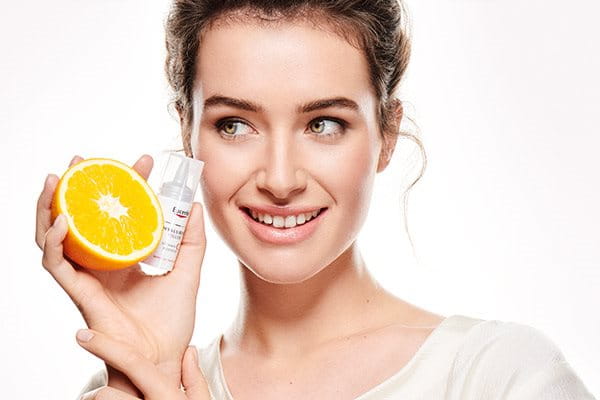
Eucerin uses 10% pure and freshly-activated L-ascorbic acid in Eucerin Hyaluron-Filler Vitamin C Booster. The formula is further enriched with low molecular Hyaluronic Acid (an effective moisturizer that plumps up wrinkles) and Licochalcone A (another anti-oxidant that works alongside Vitamin C to neutralize the free radicals caused by high-energy visible (HEVIS) light). It is suitable for all skin types and ages and is clinically and dermatologically proven to strengthen skin and plump up wrinkles for smoother, fresher and more radiant skin in just seven days.
1 Fitzpatrick RE, Rostan EF. Double-blind, half-face study comparing topical vitamin C and vehicle for rejuvenation of photodamage. Dermatol Surg. 2002; 28(3): 231-236
Our brand values

We deliver a holistic dermo-cosmetic approach to protect your skin, keep it healthy and radiant.

We work together with leading dermatologist and pharmacist partners around the world to create innovative and effective skincare products they can trust and recommend.

For over 100 years, we have dedicated ourselves to researching and innovating in the field of skin science. We believe in creating active ingredients and soothing formulas with high tolerability that work to help you live your life better each day.


